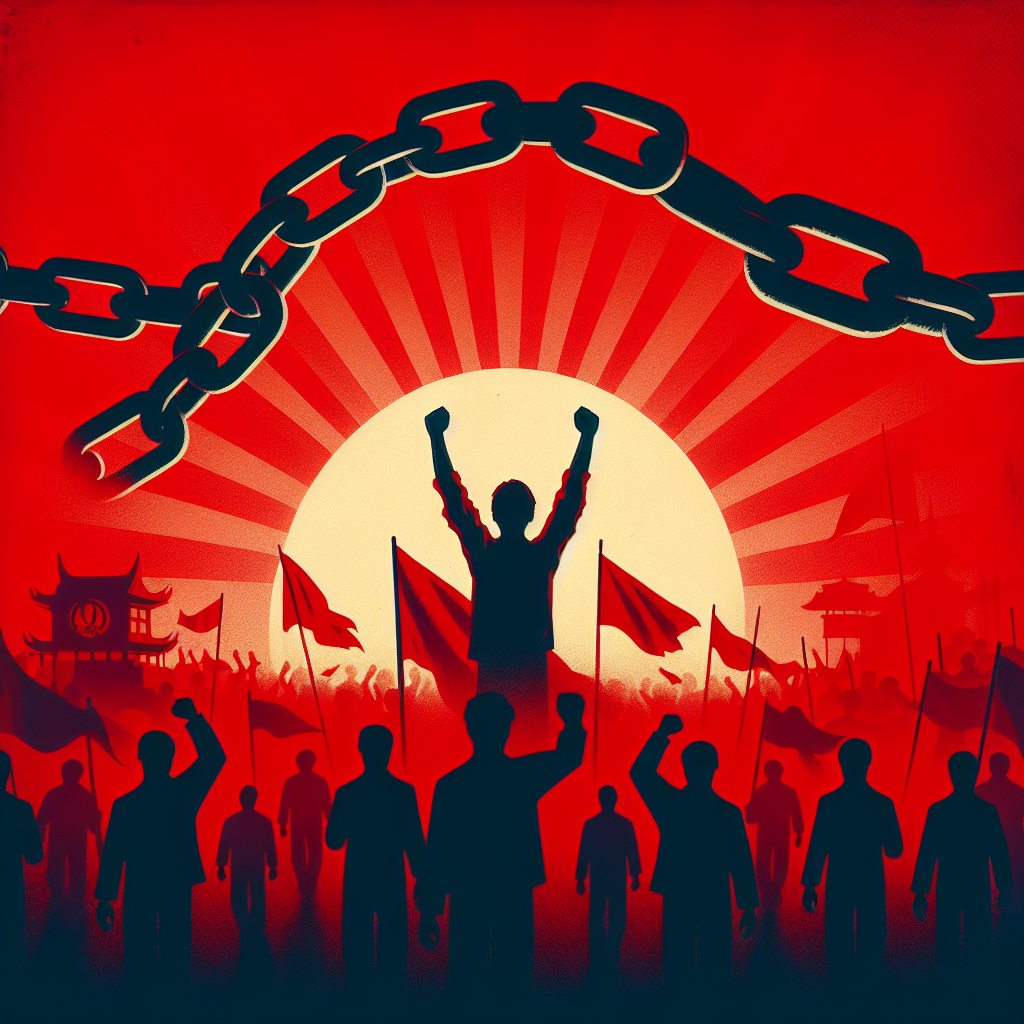The Legacy of Mao Zedong: A Complex Tapestry of Power, Pain, and Politics
The story of Mao Zedong—a name that evokes an array of emotions, a spectrum of interpretations, and a history marred by extreme ideology—is a narrative that strikes at the core of modern Chinese identity. It is a tale woven through with strands of zealotry, terror, and ambition, set against a backdrop of suffering on a scale almost too vast to comprehend.
The Cultural Revolution: A Personal Retrospective
The Cultural Revolution (1966-1976) stands as a pivotal epoch in Chinese history, a time when Mao Zedong, in a bid to recapture his relevance and reinforce his ideology, unleashed a campaign that would plunge the nation into chaos. Individuals like Jung Chang, whose narratives provide a chilling and intimate look at the era, embody the personal cost of Mao's policies.
Torn Families, Broken Lives
Chang's account of her family's tribulation—her father's persecution and eventual death, her mother's cruel denunciations, and the psychological toll it took on her—lays bare the scope of Mao's cruelty. It exemplifies the experience of countless Chinese families whose lives were irrevocably shattered during those years.
Indoctrination and Control
A relentless campaign of indoctrination infused with terror ensured the populace's compliance. Mao's image was glorified to near-divine status, and any dissent was met with brutal retribution. This systematic brainwashing, coupled with the country's isolation from external information, created an environment where even the mere thought of questioning Mao became anathema.
Surviving the Desolation
Chang's journey from a privileged child to a forced laborer encapsulates the dichotomy of her experience. As a peasant, Barefoot doctor, steelworker, and electrician, she witnessed firsthand the ordeals of the Great Leap Forward—a disastrous campaign led by Mao that caused an estimated 40 million deaths due to famine.
The Psychology of Totalitarianism
The manipulation of basic human instincts for sadism, violence, and obedience underpins the architecture of totalitarian regimes. Mao's astute understanding of these primal forces enabled him to erect a power structure that thrived on the suppression of free will and the exaltation of his singular vision.
Total Control through Terror
The Cultural Revolution's success in curbing opposition was largely due to the comprehensive layers of control that squelched any seeds of resistance. By mobilizing the youthful zeal of the Red Guards and instilling an atmosphere of fear, Mao tightened his grip on the nation's psyche.
The Shadow of Mao: Unwavering Allegiance or Political Necessity?
The enigma surrounding the continued reverence for Mao, despite his catastrophic policies, is a subject of debate. For leaders like Deng Xiaoping, who suffered under Mao's rule, their reluctance to denounce Mao posthumously has baffled many observers.
A Struggle Between Morality and Power
The choice to maintain the party's legitimacy by upholding Mao's legacy, even at the expense of historical accountability, reflects a complex calibration of power dynamics. It perhaps indicates an understanding that the Communist Party's survival was intricately linked to the sanctity of Mao's image.
Economic Reforms Over Historical Reckoning
Under Deng Xiaoping's leadership, China embarked on a path of reform that would transform it into an economic powerhouse. This shift in focus from Mao's ideological purges to economic pragmatism may have contributed to the decision to sidestep a thorough moral reckoning with the past.
The Great Leap Forward: A Catastrophe Remembered
The Great Leap Forward (1958-1962) stands as a stark testament to the perils of dogmatic governance. Mao's pursuit of rapid industrialization led to one of the deadliest famines in human history. For the peasants who bore the brunt of this disaster, life became a daily struggle against starvation and privation.
The Human Cost of Ideology
The famine's impact extended far beyond the staggering mortality figures. It was a calamity that etched itself into the collective memory of a generation—transforming the very fabric of rural society and leaving a legacy of trauma that many would carry for a lifetime.
Future Reflections: Understanding Mao's China
In grappling with the legacy of Mao Zedong, it is crucial to approach the subject with a nuanced understanding of the historical and psychological forces at play. The narratives of those who lived through the era, like that of Jung Chang, offer invaluable insights into the complexities of life under Mao's regime.
A Need for Truth and Reconciliation
The path forward for China entails a sober reflection on the past—a process that requires courage, openness, and a commitment to truth. As new generations seek to make sense of their nation's history, the lessons learned from accounts of survival and resilience will be instrumental in shaping a more informed and empathetic society.
Mao Zedong's chapter in Chinese history is far from closed, with debates and discussions about his reign continuing to provoke intense scholarly and public discourse. As time passes, the challenge remains to reconcile respect for historical continuity with the imperative of acknowledging past horrors.
For those wishing to delve deeper into the context of Mao's China, further reading and resources are available at:
In examining the shadows cast by Mao's rule, we are confronted with questions about power, ideology, and the human capacity for both resilience and destruction—a complex tapestry that continues to shape the contours of contemporary China.
Related News
- The Strategic Playbook of the Chinese Government: Beyond Western Expectations
- The Pivotal Mistake of China's Taiwan Ambition and Its Economic Odyssey
- The Untold War Stories: The Nationalists' Struggle in China
- The Unipolar Moment and Its Impact on Global Power Dynamics
- Revisiting the Enigmatic Figure of Oppenheimer: Between Ideology and Practicality
